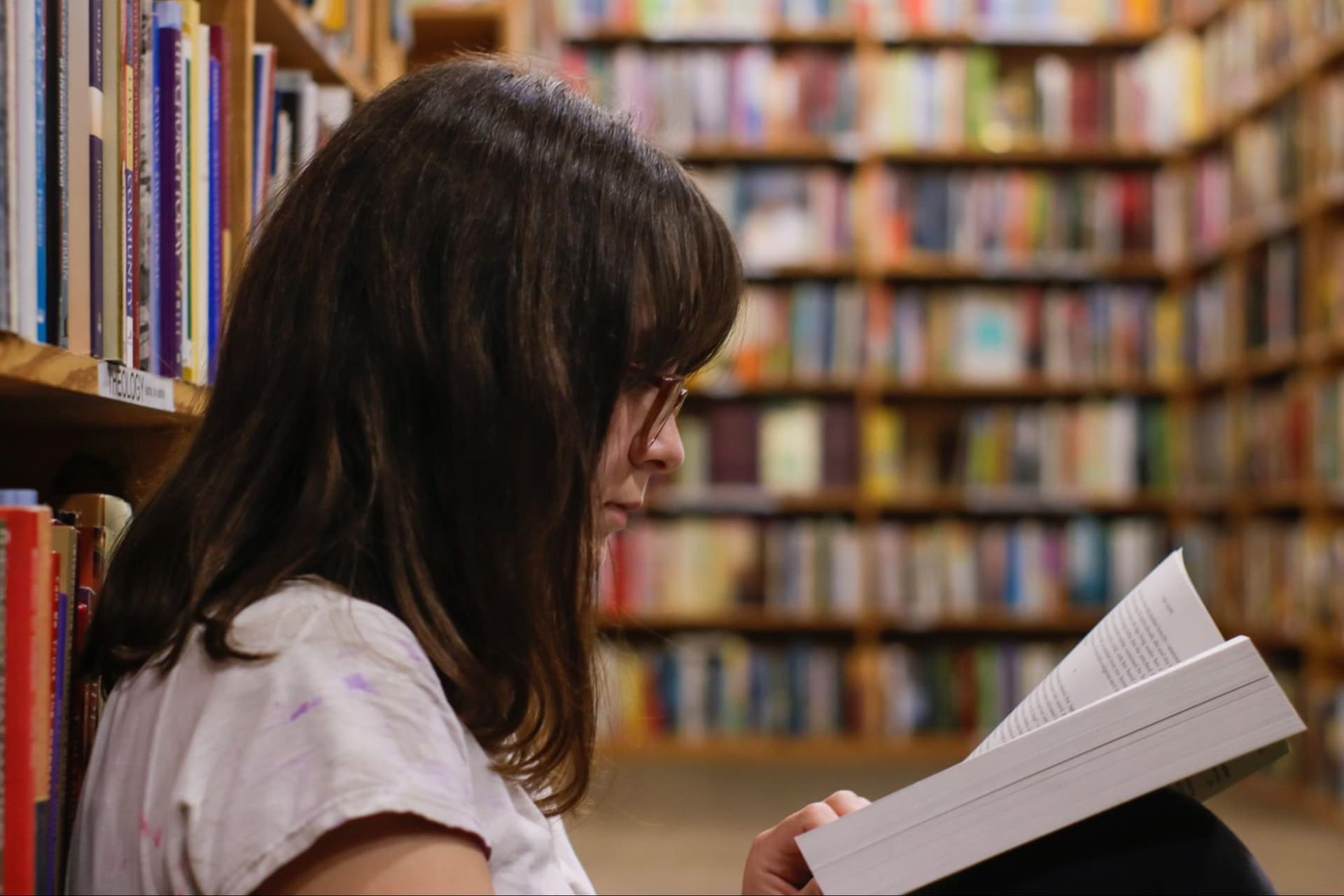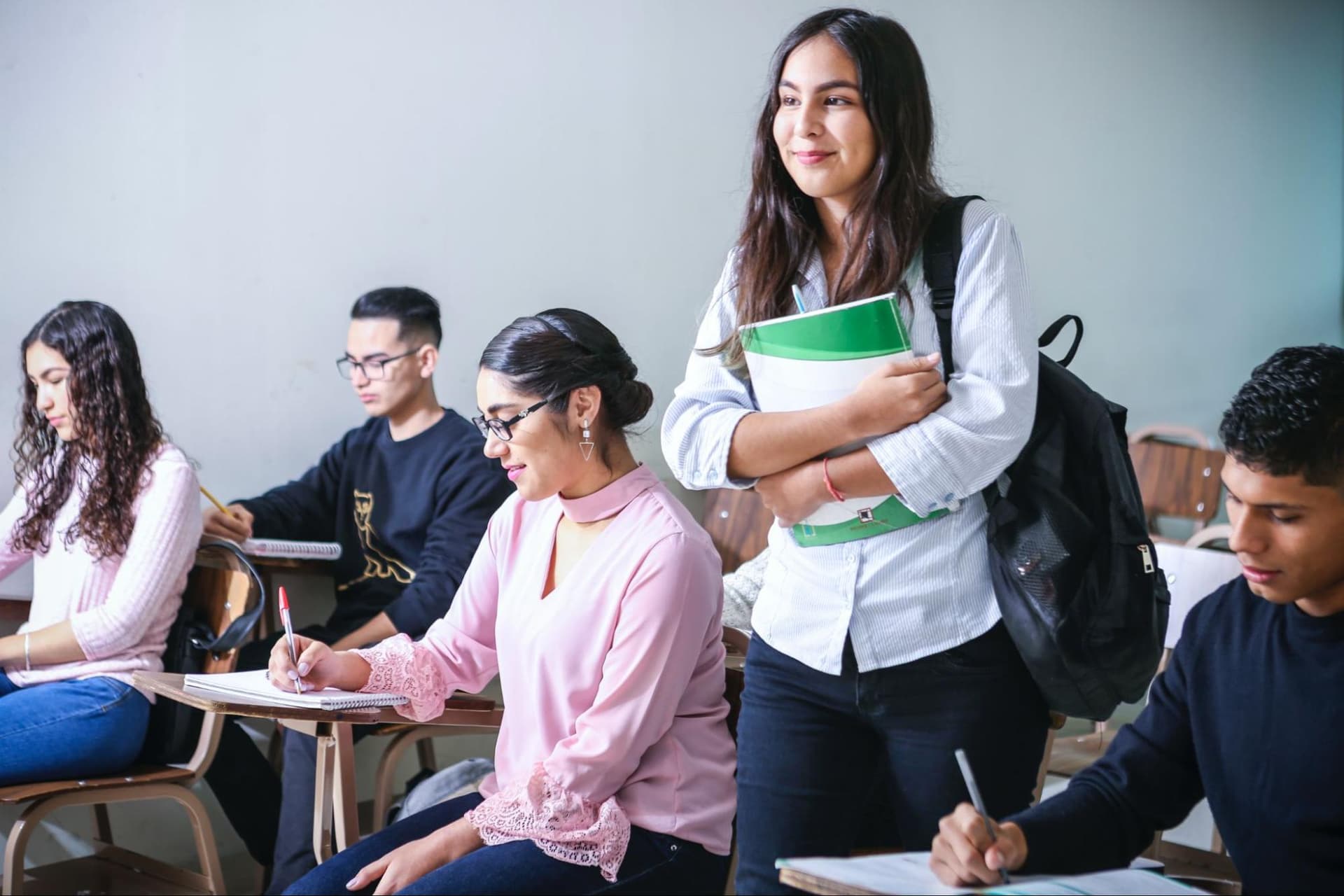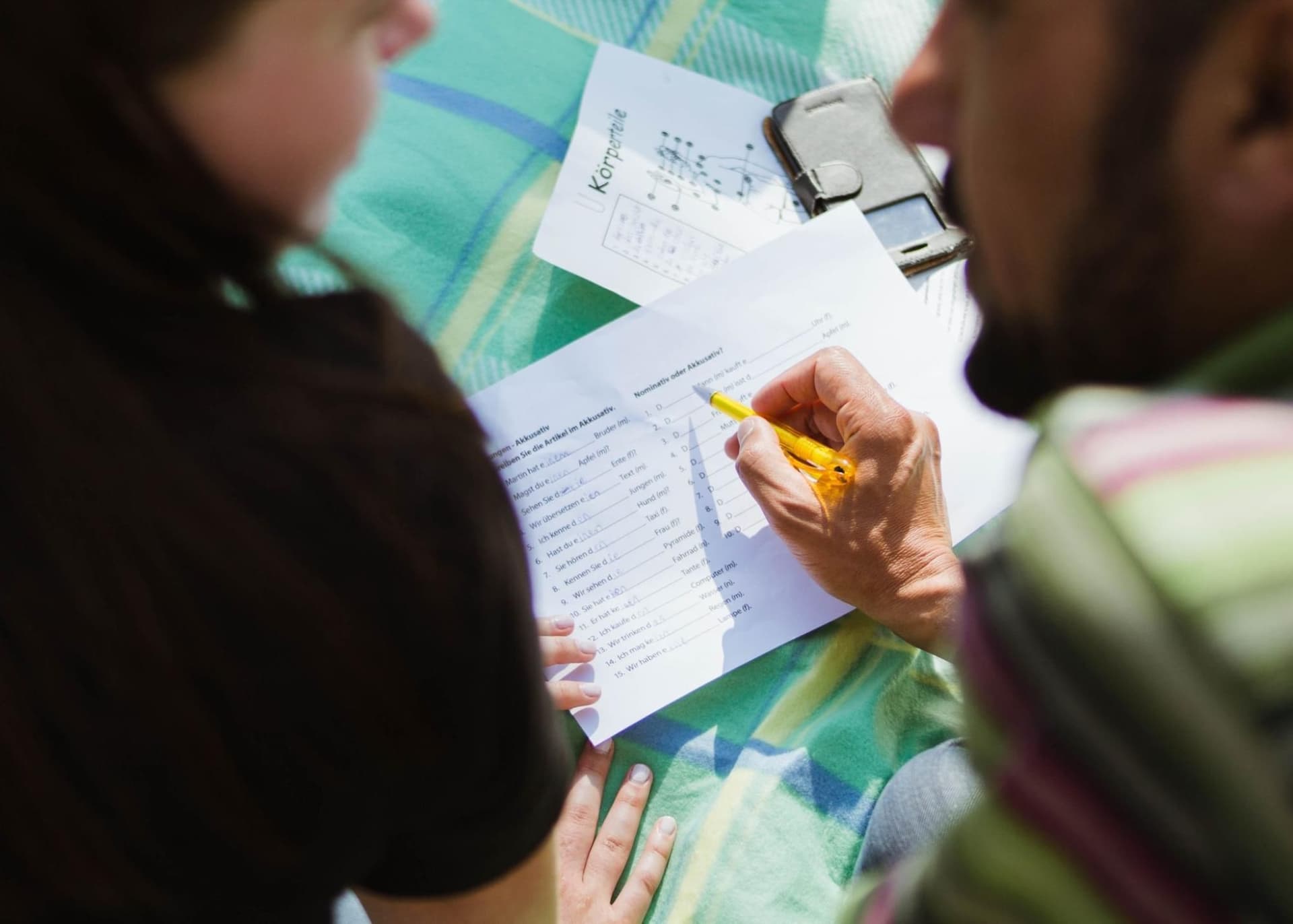
Education in Luxembourg
This article provides a walkthrough of the education journey in the country, from early childhood programs like pre-schools and crèches to pursuing higher education degrees. We'll address the most common questions and clarify how the education system functions.
The educational system in Luxembourg is known for its high standard of education and comprehensive structure that caters to students from pre-school to university level.
- Education starts in pre-school for children aged 3 to 6 years and is partly compulsory depending on age.
- Primary education starts at the age of 6 and lasts for 6 years. Secondary education is divided into junior and senior classes with the opportunity for pupils to pursue different types of studies.
- There are also several universities and institutions offering bachelor’s, master’s and doctoral degree programs. And, as it is never late to study, there are a lot of opportunities for adults to pursue continuing education.
This brochure was designed by the Ministry of Education to help navigate through the education system in Luxembourg. It covers all steps of education, from daycare to higher and continuous education.
Fundamental education in Luxembourg: cycles
Fundamental education in Luxembourg lasts for 8 years*, from ages 4 to 11, and is structured into four cycles. However, first year of Précoce is not mandatory.
Mandatory education – ages 4-5
Elementary school – ages 6-11, cycle 2-4:
- ages 6-7 — cycle 2,
- ages 8-9 — cycle 3,
- ages 10-11 — cycle 4.
Fundamental education also includes Précoce: optional early training for children from 3 to 4 years old, but it is not compulsory to attend.
The curriculum for fundamental education in Luxembourg is broad and covers a wide range of subjects, including Luxembourgish, French and German languages, mathematics, science, history, geography, art, music, and physical education. Students are also encouraged to participate in extracurricular activities, such as sports clubs, music lessons, and theater groups.

There are almost 160 public elementary schools in the Grand Duchy, spread throughout all the 102 municipalities in the country, and about a dozen private schools. There is no charge for pupils attending public schools, and textbooks are provided for free and covered by the state.
Pre-school education in Luxembourg consists of creche (day-care), precoce (optional education for children ages 3 to 6) and prescolaire, mandatory school preparation.
Crèche
Precoce
Prescolaire, cycle 1 (ages 4-5)
Primary education in Luxembourg is compulsory and free for all children from the age of 6 to 11 years old. It is divided into three cycles, each is two years long.
Students who complete Cycle 4 of primary education are placed in one of three types of high schools: general secondary schools, technical secondary schools, or vocational schools. The placement is based on their academic performance in Cycle 4 and their interests. There is a special exam, that happens at this stage.
A report on competencies acquired by children is presented at the end of Primary education. It includes assessment of different skills, performance, and overall progress in schooling. You can see more details on what skills are evaluated and what to expect in such a report in the document.
Want to choose the right school for your child? Wondering about preschools? Feel free to read our articles about the school system in Luxembourg for details of the country's schools education system:
Luxembourg schools: how does the school education system work;
How preschool education works in Luxembourg: nursery, daycare, school preparation;
Secondary education in Luxembourg
After the Enseignement fondamental, the Enseignement secondaire stage begins. It is secondary education, which is usually obtained in middle schools and lyceums across the country. This period of education lasts for seven years and prepares children for further steps.
Junior classes are the first three years of secondary school (ages 12-15). Students in junior classes typically take a general academic program that prepares them for the upper classes of secondary school.
At the end of the third year of secondary education, students take a national exam called the Certificat de fin d'études secondaires (CFE). This exam is not required for graduation, but it is required for admission to most upper secondary schools.
The senior classes of secondary education in Luxembourg are the last four years of secondary school. Students in the upper classes typically take a more specialized program that prepares them for university or other higher education.
At the end of the fourth year of secondary education, students take a national exam called the Baccalauréat. The Baccalauréat is required for admission to a university in Luxembourg. This school-leaving examination covers six subjects, comprising six written tests and two oral tests. Subjects for exams are chosen by the student, and the grade is compiled from the grades for the school year and exam results.
Lycées in Luxembourg
There are several types of secondary schools. Students can choose them based on the results of their previous education and interests. You can see the full list of lyceums in Luxembourg on the official website.
Classical secondary education (ESC)
General secondary education (ESG)
European international education
International English curriculum (Cambridge)
British education
German-Luxembourgish education
Languages in schools
The school system in Luxembourg is characterized by multilingualism. The three official languages of Luxembourg are 🇱🇺 Luxembourgish, 🇫🇷 French, and 🇩🇪 German. As a result, the language of instruction in schools depends on the educational cycle and the specific program.
In the early years of education, such as pre-school and primary school, Luxembourgish is primarily used. As students progress to secondary school, the language of instruction shifts to either French or German, depending on the specific track chosen. Additionally, English is taught as a foreign language in schools.
Integration support for foreign children in Luxembourg schools
CASNA, Cellule d'accueil scolaire pour élèves nouveaux arrivant), is a service of the Luxembourg Ministry of Education that provides support and assistance to newly arrived students who do not yet have proficiency in the language.

Reception by prior arrangement only. Email: secretariat.secam@men.lu
The organization helps with mediating problems, establishing communication between foreign students, their parents and the school, as well as helping teachers to find the best ways to integrate the child. The services are provided free of charge.
Mediators from CASNA can help to study the education system, enroll in school, attend the welcome meeting and provide translation, as well as just support kids' integration into the education in the new country.
A special brochure from the Ministry can help you understand what mediators do. It is available in French and provides an overview of the services provided and languages available.
Home schooling in Luxembourg
This is also an option if for some reason you prefer your kids to study at home. Parents must obtain permission from the regional school inspector before they can start homeschooling their children.
To obtain permission parents must inform the commune of their residence or contact the Ministry of Education. The inspector will assess the parent’s ability to provide a suitable learning environment and ensure the children receive a quality education. After permission for home education is granted, the inspector will visit the children at least once a year to assess their progress in education.
If the inspector is not satisfied with the children's progress, they may withdraw permission for homeschooling.
Higher education in Luxembourg
Luxembourg has a well-developed higher education system that offers a variety of programs at the bachelor's, master's, and doctoral levels. Luxembourg's universities and institutions offer a wide range of programs in a variety of disciplines, attracting both national and international students.
With a multilingual and multicultural environment, Luxembourg encourages research, collaboration and interdisciplinary studies. Students benefit from modern facilities, cutting-edge research centers and close links with industry.
The University of Luxembourg is the largest and most prestigious university in Luxembourg. It is located in Luxembourg City and offers a wide range of programs in English, French, and German. The university is known for its excellent research and its strong ties to the business community.
In order to apply, you do not need to be in Luxembourg. They have a convenient online admission system, that is working well.
If you are eager to know more about how to become a student, read our interview with the recent graduate: How to get into the University of Luxembourg.
Most of the programs in the university are covered by the government, and the student will only have to pay 200 euros per semester. But some of the programs can cost more than 5000 euros: for example, a Master's degree in Entrepreneurship or Psychotherapy.
In general, there are a few simple steps to submit an application for admission to the University of Luxembourg:
- Choose from one to three study programs on the website;
- Complete and submit the online application form;
- Pay the administrative file fee if requested (usually 50 euros per application);
- Receive an automatic email and create a temporary account;
- Upload the documents required for the chosen study program(s);
- Submit your online application and wait for the results.
After the application is submitted, it will be evaluated by the committee. Based on this, you will receive a letter from them, stating the results of your application. A good motivational letter can surely help the process!
Luxembourg School of Business and Finance is a private university located in Luxembourg City. It offers a variety of MBA programs in business, finance, and economics. The admission process starts with an online application which must consist of:
- proof of English proficiency (IELTS or TOEFL certificate),
- academic qualifications,
- GMAT or GRE scores,
- a personal statement,
- Passport, valid for at least 3 months after the expiration date of the requested visa. With at least two blank pages.
The application deadline is March 1st. The admission committee reviews each application and notifies applicants of their admission decision by April 1st.
International Institute for European Studies is a private university located in Luxembourg City. It offers a variety of programs in European studies, law, and political science.
In order to apply, applicants have to fill out an online application. After the application is evaluated by an admission committee, applicants receive a decision letter. The admission process may vary depending on the program and level of study.
There is more to know about higher education in the Grand Duchy. Be sure to check out our article about Luxembourg universities.
Continuing education for adults in Luxembourg
There is no age limit for learning. The state supports continuing education and provides options for adults to learn and recognize their knowledge in the country.

Continuing education is a wide range of programs, courses, and activities designed to help adults learn new skills, improve their knowledge, and advance their careers. There are many different types of continuing education programs available in Luxembourg, including:
Vocational training: provide adults with the skills they need to get a job or advance in their current career
Academic programs: an opportunity to earn a degree or certificate
Personal development programs: help adults improve their skills in areas such as communication, teamwork, and problem-solving
Service de la Formation des Adultes
The Department of Adult Education (Service de la Formation des Adultes) coordinates adult education and vocational training. They provide more than 3000 courses in different communes and provide training in different areas, such as:
- Languages,
- Arts and crafts,
- Citizenship and integration,
- Natural sciences and mathematics,
- Humanities and social sciences,
- Physical activity and well-being.
Seeking for more information? Read the special brochure about the life-long learning and vocational courses provided with state support to people of all ages and education levels in the Grand Duchy.
Lifelong-learning.lu.
Another organization, that curates the process of ongoing education for all ages is Lifelong-learning.lu. It is a national portal that provides useful information about training courses and educational opportunities for adults. It aims to foster learning throughout the whole life and raise awareness of the importance of education. They also help companies to train their employees, and hold a range of educational events and initiatives in the Grand Duchy.
Adress: C2 Immeuble Cubus, 2 Rue Peternelchen, Howald, Luxembourg
Phone: (+352) 46 96 12 1
Website: lifelong-learning.lu
Official recognition of the educational level or higher education diploma obtained in another country is possible in Luxembourg. The process works through an application for recognition or entry in the register of higher education diplomas.
Recognition of diplomas usually has a fee of around 75 euros per diploma. The average processing time is 4 to 6 weeks, though it may vary depending on the time of year and the number of applications being processed simultaneously.
The application for recognition of academic studies or diplomas can be filled out online via the Ministry of Higher Education and Research.
Frequently Asked Questions (FAQ)
How education is build in Luxembourg
What language is used in schools in Luxembourg
Is higher education free in Luxembourg
What are the admission requirements for higher education in Luxembourg
Source: guichet.public.lu, men.public.lu, guichet.public.lu, www.lifelong-learning.lu
We took photos from these sources: Thought Catalog, Unsplash, Eliott Reyna, Unsplash Javier Trueba, Unsplash Archdaily.com, Fernanda Castro Luxembourg School of Business and Finance MasterGoals Annika Gordon, Unsplash


